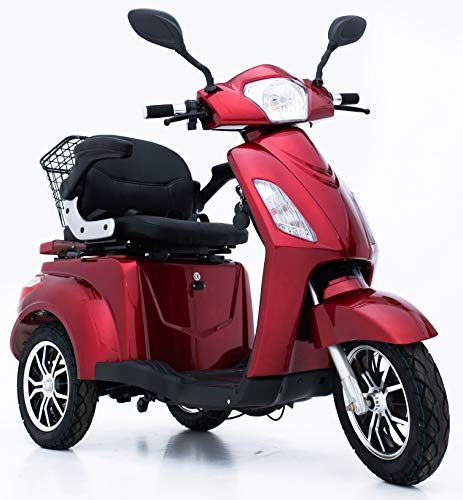11 "Faux Pas" Which Are Actually OK To Make With Your Personal Transportation
What Is Personal Transportation?
Private transportation refers to the use of privately owned personal transport vehicles. This includes bicycles, cars, scooters unicycles, and other micromobility devices. It can also refer to the use of public transportation systems.
Private transport is a fantastic option to reduce time and get where you need to get to. Additionally, it's more comfortable and provides an element of privacy that's not offered with public transport.
Cost
The cost of personal transport can be a major expense for many families. This makes it difficult for families to save or invest money in other areas. Fuel can be an expensive expense. There are ways to reduce your transportation costs.
Even with these advantages however, some people prefer private transport to commute. They believe it's the most convenient and comfortable way to get around. Some people prefer traveling with their own chauffeur. The cost of this kind of transport is typically higher than public transportation, but it can bring more peace of mind and security.
In
Click On this site will likely be more electric because EVs benefit from advancements in battery technology and charging infrastructure. Additionally, EVs will have lower emissions than conventional vehicles and will be more accessible. This will make it easier to switch from gasoline to electric vehicles. This will decrease GHG emissions as well as traffic congestion.
The advantages of public transportation are numerous and are a great alternative to private transport. In comparison to private vehicles, mass transit is cheaper and more sustainable. Moreover, it provides a lot of convenience and is often fitted with security cameras to ensure the security of passengers. In addition, it helps passengers avoid paying for maintenance and parking fees. The main drawback of public transportation is that it may sometimes be slow and unpredictable. It can also be difficult to travel with children or elderly people. This can lead to delays and missed medical appointments.
Time is an important factor.
The time it takes to complete a personal transport task can impact the lives of people. People with busy schedules often discover that commuting is too long. People can reduce the time they spend commuting by using carpools, working from home or staying near their work. They can also cut down on time by walking or riding a bike instead of driving.
The advancement of new technologies could revolutionise the personal transportation field. Electric vehicles equipped with solid state batteries are a good example. They have more range and faster charging times. These technologies can also increase safety and lower traffic congestion through optimised traffic management. Autonomous vehicles are a further technology that makes travel more comfortable and convenient. They can even help individuals stay in shape by keeping them moving.

Privacy
Privacy is a crucial aspect of personal travel. People who value privacy prefer to drive or ride in private vehicles rather than taking public trains or buses which are shared with strangers. Moreover, public transportation is often considered to be less secure than private transportation which could affect the safety of passengers. This is especially the case for older people who are more likely to be concerned about their safety.
Privacy issues are a major concern for those who travel with their children. Children may be stressed due to having to share space with other passengers. This can result in problems with behavior like aggression and hyperactivity. This is why parents are increasingly choosing to use private transport to ensure their children's safety. This will also lessen the stress of travelling with children, and the amount of time spent in commuting. This could help reduce the cost of childcare.
Convenience
Personal transportation is an integral aspect of our daily lives. However the decision you make can affect your health and wellbeing. It is important to think about the pros and cons of each option before deciding which method of travel best fits your needs.
A few people prefer public transportation, which is usually cheaper than private transportation and requires less maintenance. In addition, it has a lower environmental impact because it doesn't emit the same amount of carbon dioxide per person. It also helps you save on fuel and parking costs, and enjoy greater convenience and flexibility on your daily commute.
Public transport is not always reliable and comes with a number of risks. In some instances, you may be exposed to crime or be unable to get to your destination on time due to weather or mechanical problems. Many bus and train routes can be jammed and make it difficult to unwind and move around.
On the other hand private transportation is a great way to travel around in privacy and comfort. It's usually more efficient than public transportation and you'll avoid crowds by travelling in a private vehicle. It is also more convenient to travel in the private vehicle instead of one that you drive because you can choose your preferred route.
Despite all these advantages however, the majority of people prefer to make cars their primary mode of transportation. It could be because they're more comfortable or have a higher worth. Electric vehicles (EVs), which are becoming more affordable and easy to charge, could alter the ways we travel in the future.
In a recent study researchers at MIT looked into what factors influence people's modal choices. They found that while the safety aspect is important however, it does not play a major role in determining modal choice. The most important factors are availability and speed, as well as cost. This is in line with previous studies of the various modes of transportation and is likely to persist for a long time. Similarly, a new battery technology, which makes use of solid state batteries could further enhance the efficiency of EVs and allow them to travel further with the same amount of power.
